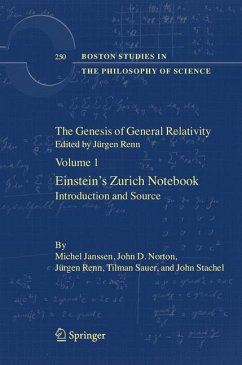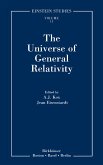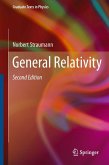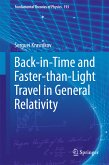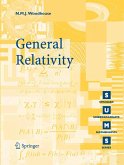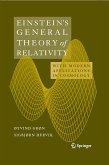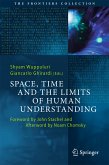Dieser Download kann aus rechtlichen Gründen nur mit Rechnungsadresse in A, B, BG, CY, CZ, D, DK, EW, E, FIN, F, GR, HR, H, IRL, I, LT, L, LR, M, NL, PL, P, R, S, SLO, SK ausgeliefert werden.
Hinweis: Dieser Artikel kann nur an eine deutsche Lieferadresse ausgeliefert werden.
These volumes prove that to Wittgenstein's saying that "Genius is what makes us forget skill" ought to be added the statement "when viewing the finished product." Genius is also the ability to master the available resources and techniques and to synthesize them in a manner that overwhelms. The volumes are the product of a remarkable cooperative effort on the part of five of the most distinguished Einstein scholars. They deciphered and analyzed the extended research notes that Einstein made from 1912 to 1915 in his struggle to arrive at the final formulation of his theory of general relativity. In doing so they have given us deep new insights on Einstein's creativity and on creativity in general, on context, on the role of past resources and expertise, and on the function of analogies. Their researches, observations and commentary have also made us think anew of the concept of a scientific revolution. Their splendid work is surely one of the most important and seminal scholarly accomplishments of recent times.
S.S. Schweber, Brandeis University, USA
"The publication of The Genesis of General Relativity marks the outcome of 10 years of research into the origins of Einstein's General Relativity Theory ... . It provides a comprehensive study and in-depth analysis of how the work of Albert Einstein and his contemporaries changes our understanding of space, time and gravitation. ... At the center of this reconstruction, is a commentary of Einstein's unpublished research notes, so-called 'Zurich Notebook', presented in their entirety for the first time." (Renn Jürgen, www.physorg.com, February, 2007)
These volumes are the result of over two decades of effort, by most of the
leading scholars in the field, to understand the process that culminated in
1915 and 1916 in Einstein's publication of the general theory of relativity.
In addition to relativity physicists theproject involved, both individually
and more frequently collaboratively, historians and philosophers of science.
The central objective was, through this richly documented case study, to
identify universal features of the epistemological transformation that the
authors have called a "Copernican process": How is it that heuristic guides
can render conceptual changes that invalidate their use? This dynamical
transmutation is firmly rooted in received societal and disciplinary scientific
knowledge. In the particular case under study here, most relativists will
probably have little trouble rejecting the mistaken popular notion that Einstein
was an isolated genius, creating his new world through shear inspired
imagination... Donald Salisbury, July 2008
To read more of this review - paste this link into your browser.
http://arxiv1.library.cornell.edu/abs/0807.3706v1

